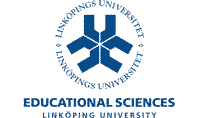|
|
| |
| SYLLABUS |
| Popular Education and Globalisation,
15 ECTS Credits |
| |
COURSE CATEGORY Single Subject Course
MAIN FIELD OF STUDY Pedagogiskt arbete - PGA
SUBJECT AREA
|
|
COURSE CODE |
|
924G06 |
|
| AIM OF THE COURSE |
After completion of the course the student shall:
- beable to present basic knowledge on different theoretical perspectives on globalisation, particularly concerning the relation to popular education as an idea and in practice.
- be able to understand how local and global processes have influence on the conditions for the work of social movements and popular education organisations.
|
| CONTENTS |
| The course intends to give an orientation on globalisation theories and how these can illuminate different aspects of popular education as idea and practice. Questions in focus are: What does globalisation mean? What is the significance of globalisation for the conditions of popular education? What is new and what is old in the discussion on globalisation? The course covers partly globalisation ’top-down’ as signified by multinational corporations and global institutions, partly efforts on globalisation ’bottom-up’ and the debate on a global civil society. With emphasize on the conditions for social movements and popular education organisations global phenomena in local contexts, and possibilities and problems in transnational cooperation, are studied. |
| TEACHING |
| The modality of the course is mainly at distance based on an interactive website and electronic conferences. The teaching and learning process is based on digital methods like weblectures, videos, on-line seminars and studygroups on the net facilitated by a studyguide and literature. |
| EXAMINATION |
The course is examined through written individual tasks and through active participation in seminars (in physical meeting and/or on line.
Students failing an exam covering either the entire course or part of the course two times are entitled to have a new examiner appointed for the reexamination. |
| ADMISSION REQUIREMENTS |
Documented knowledge of English equivalent to "Engelska B"; i.e. English as native language or an internationally recognized test, e.g. TOEFL (minimum scores: Paperbased 550 + TWE-score 4.0, computorbased 213 and internetbased 79), IELTS, academic (minimum score: Overall band 6.0 and no band under 5.0), or equivalent. |
| GRADING |
|
| CERTIFICATE |
| Course certificate is issued by the Faculty Board on request. The Department provides a special form which should be submitted to the Student Affairs Division. |
| COURSE LITERATURE |
|
The course literature is decided upon by the department
in question. |
| OTHER INFORMATION |
Planning and implementation of a course must take its starting point in the wording of the syllabus. The course evaluation included in each course must therefore take up the question how well the course agrees with the syllabus.
The course is carried out in such a way that both men´s and women´s experience and knowledge is made visible and developed. |
| |
Popular Education and Globalisation
Popular Education and Globalisation |
| |
Department responsible
for
the course or
equivalent:
IBL - Department of Behavioural Sciences and Learning |
| |
|
|
|
|
|
| Registrar No: 242/07-41
|
|
Course Code: 924G06 |
|
|
|
| |
|
Exam codes: see Local Computer System |
|
|
|
| Subject/Subject Area : Pedagogiskt arbete - PGA |
|
|
|
|
|
| |
|
|
|
|
|
| Level |
|
Education level |
|
|
Subject Area Code |
|
Field of Education |
|
| G1X |
|
Basic level |
|
|
UV2 |
|
SA |
|
|
The syllabus was approved by the Board of Educational Sciences 2008-12-16
|
|
|
| |
